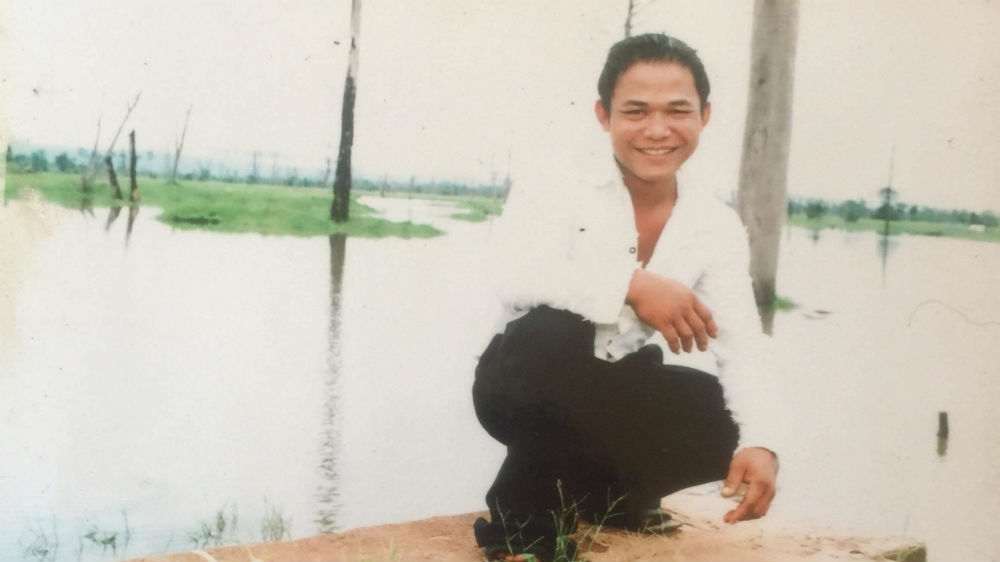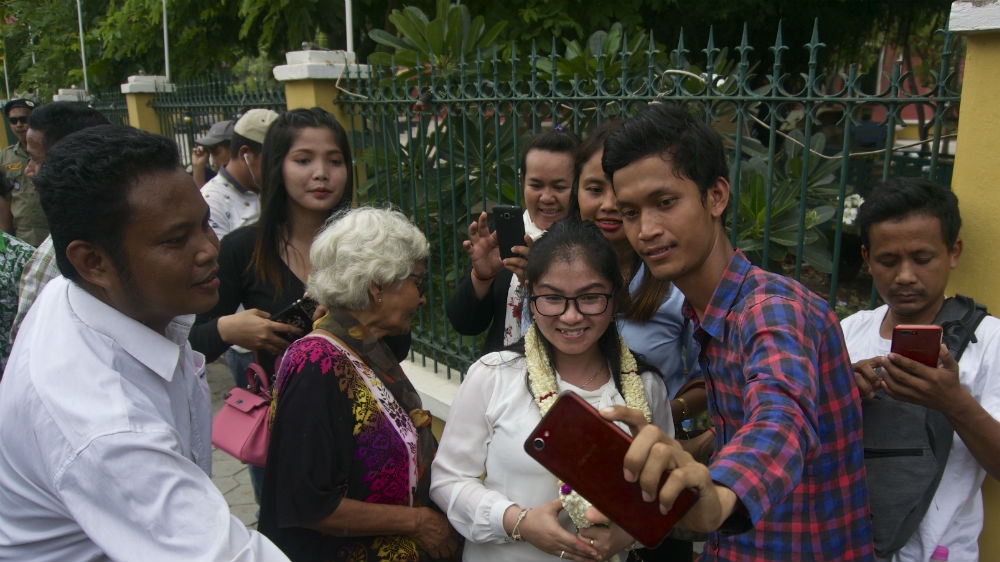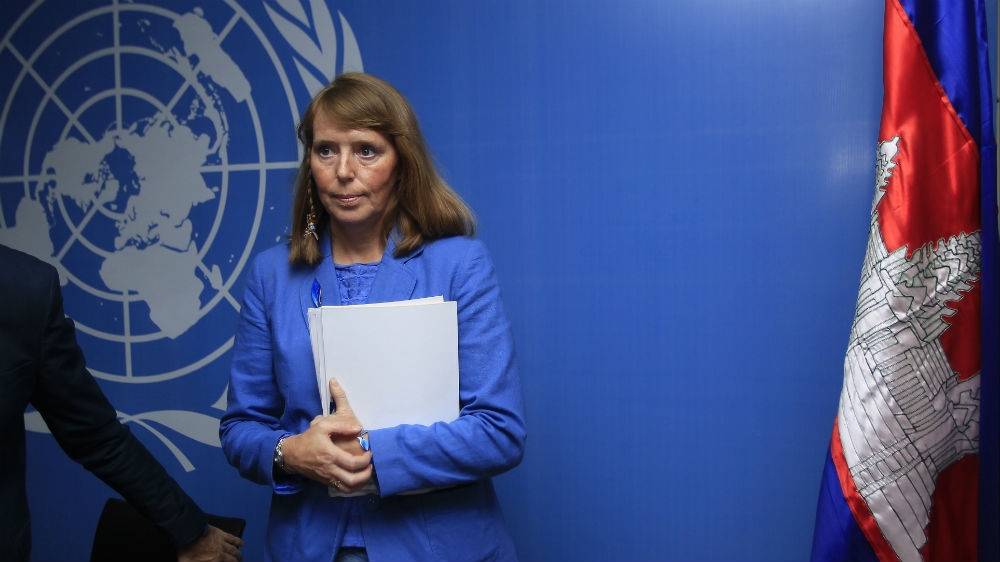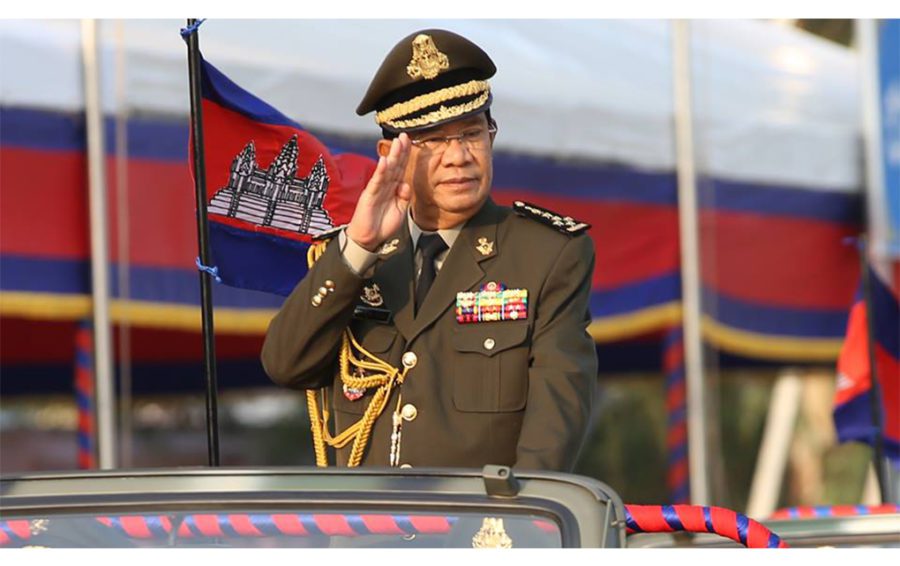Cambodia’s PM Hun Sen Dismisses Calls For Resignation, Vows to ‘Wage War’ on Opposition
Op-Ed: RFA, 2019-05-30

Cambodian Prime Minister Hun Sen delivers a speech during the 25th International Conference on The Future Of Asia in Tokyo, May 30, 2019.
AFP
Cambodia’s Prime Minister Hun Sen on Thursday brushed aside calls by members of the Cambodian diaspora in Japan to resign, pledging instead to “wage war” against his country’s banned opposition party and vowing to “destroy” its acting president, Sam Rainsy.
During the third day of his May 28-31 visit to Tokyo to attend the 25th session of the Future of Asia conference, Hun Sen told regional leaders during a speech that he has no plans to step down or to back off former members of the opposition Cambodia National Rescue Party (CNRP), which Cambodia’s Supreme Court dissolved in November 2017 for its alleged role in a plot to topple the government.
“I am declaring today that we will continue to implement legal measures against those who are being charged [with crimes],” Hun Sen said, referring to members of the CNRP leadership in exile, including Sam Rainsy, who fled the country in 2016 to avoid what he says are politically motivated convictions, and has worked to gather support for the party abroad.
“Meanwhile, I am waging war against a person [Sam Rainsy] who has claimed to have established a movement in Japan, Thailand and Cambodia to stage a war against me,” he added, calling the CNRP chief “a dog that I need to destroy.”
As long as the CNRP “continues to wage a war against me, I will continue to fight them,” Hun Sen vowed.
The 2017 Supreme Court ruling banning the CNRP paved the way for Hun Sen’s ruling Cambodian People’s Party (CPP) to steamroll a general election in July last year widely seen as unfree and unfair, amid a wider crackdown on the opposition, NGOs and the independent media.
In addition to ongoing political restrictions on former CNRP officials, authorities have summoned dozens of former CNRP members in Battambang and Kampong Thom provinces for questioning in recent weeks for allegedly violating the Supreme Court decision after they were seen in public eating noodles together or had expressed support in social media posts for the party’s leaders.
Anti-Hun Sen protests
On Thursday, more than 30 members of Japan’s Cambodian diaspora held a protest outside of Hun Sen’s hotel in Tokyo, carrying banners demanding that he step down, and urging China to stop supporting his rule.
They also gathered outside of the home of Japanese Prime Minister Shinzo Abe and in front of the National Diet of Japan, or parliament, shouting “Hun Sen must go” and likening him to Pol Pot, under whose 1975-79 Khmer Rouge regime an estimated 3 million Cambodians are believed to have died.
Several protesters told RFA’s Khmer Service that they had left Cambodia to find work in Japan because they lacked opportunities back home, including Nep Bora, who said she envies Japanese citizens because “their government is taking care of them.”
“Hun Sen has been in power for about 40 years, but we don’t even have enough water and electricity,” she said of Southeast Asia’s longest ruling strongman.
Others highlighted governance issues under Hun Sen’s watch that include forest destruction, land disputes, rampant corruption, and widespread poverty.
In response to Hun Sen’s comments on Thursday, Sam Rainsy told RFA that the CNRP has no intention of starting a war against the prime minister, who he labeled a “gangster” that resorts to “abusive language.”
“We don’t regard Cambodians as enemies,” he said.
“Hun Sen is waging a war against Cambodians … I am appealing to Cambodians to oppose this dictator to prevent him from destroying our nation.”
Political analyst Lao Mong Hay warned that the war of words between Hun Sen and Sam Rainsy is affecting Cambodia’s international reputation.
He also suggested that Hun Sen’s threats are part of a bid to dissuade Sam Rainsy from returning to Cambodia, as he has vowed to do this year so that he can lead the opposition to victory over the ruling party.
Members of the Cambodian diaspora in Japan display a banner used in a protest against Hun Sen in Tokyo, May 30, 2019. Credit: RFA listenersUS relations
While in Japan, Hun Sen expressed gratitude to his hosts for contributing to Cambodia’s development through financing and infrastructure, as well as investment by the Japanese private sector, and called for additional assistance from Tokyo going forward.
Continue reading
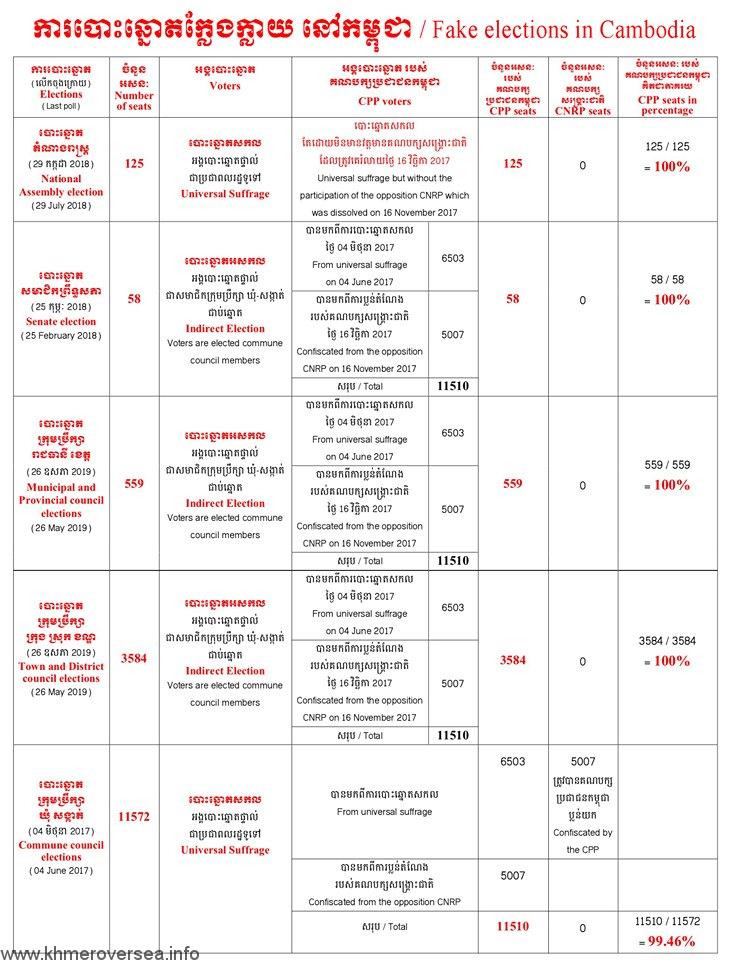
![CNRP leader Kem Sokha greets supporters on the last day of campaigning ahead of local elections in 2017. He was detained a few months later and remains under house arrest [File: Heng Sinith/AP Photo]](https://www.aljazeera.com/mritems/imagecache/mbdxxlarge/mritems/Images/2019/5/16/cc6243e3b91d4a32a59f740fbc2ebd0d_18.jpg)
